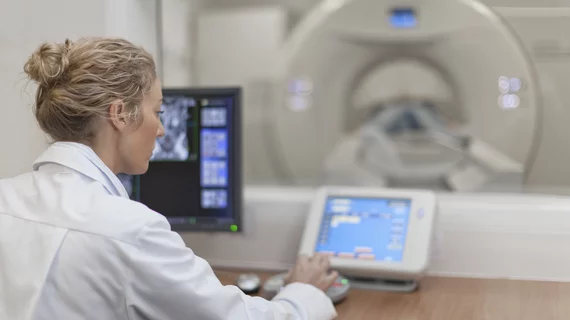It’s important to remember like any working professional, radiologists are humans and just as susceptible to feeling emotionally drained or emotionally distressed in the workplace.
As Nicole Dhanraj, PhD, chief of radiology at the Guam Memorial Hospital Authority in Tamuning, Guam recently discussed in an online session for the AHRA 2018 Virtual Fall Conference on Monday, Oct. 29, emotional distress ultimately results in moral injury—or distress from acting in a manner not in alignment with a patients' needs or a radiologist’s personal values and principles as a health care provider.
The concept of moral injury, Dhanraj explained, has slowly gained more attention from the general public in the last few decades. However, compared to other healthcare professions, radiology still lacks awareness, according to Dhanraj, who noted the competitive nature of radiology and stringent reimbursement policies makes moral injury a perfect fit.
Moral injury in healthcare
When feeling morally injured, a radiologist or any healthcare provider may experience a series of dilemmas and overall distress.
In healthcare, there exists two types of dilemmas: ethical dilemmas and clinical dilemmas. During a clinical dilemma, a physician may approach a treatment plan without basing their justifications and overall reasoning on evidence-based research or practices to ensure the best patient outcomes.
Ethical dilemmas, on the other hand, involve questioning whether care or treatment was properly conducted with the highest amount of competence, confidentiality and overall professional conduct. When faced with an ethical dilemma, Dhanraj explained that a physician is usually unable to choose a particular course of action, which then results in ethical distress and ultimately moral injury.
Moral injury in radiology
How does moral injury occur in radiology? Radiology is competitive, and most radiologists want to be financially viable. At the same time reimbursement, Medicare and commercial insurance influence every choice made, according to Dhanraj.
The industry is also “easy to fudge”, Dhanraj stated, in that radiologists can stretch out procedures and add modifiers for a more complete study. This is not because the patient will benefit, but because it brings in added revenue. However, radiology's recent transition from a pay-for-service to a pay-for-performance model has helped to somewhat alleviate this.
“But what kind of person who's working in radiology cannot distinguish and be able to stand up for what they believe is right?” Dhanraj asked. “It’s not necessarily that they are unable to stand up or about their ability to distinguish good from bad, but it is their inability to act on that for a lot of reasons...if you were to walk in their shoes, you can understand where they're coming from."
Dhanraj explained that when a radiologist feels this sense of “disequilibrium," managers and organizations need to make sure proper guidelines and protocols are set in place so employees don’t feel they must compromise their values.
Internal reasons for why radiologists aren’t able to address moral injury include fear of job loss, failure to make a difference in the past and self-doubt. Dhanraj noted that when considering these reasons, it’s important for other department workers to put themselves in a radiologist’s or physician’s shoes to better understand their perspective and decisions. Additionally, external reasons include working under a toxic leadership model, lack of support from the organization, working for an overall toxic organization, or fear of litigation or career sabotage, according to Dhanraj.
Strategies to combat moral injury
What strategies could be implemented to manage moral distress, or is an employee stuck? Manifestations such as guilt, thoughts of suicide, burnout, anxiety, depression or insomnia must be acknowledged by the individual feeling morally injured.
Gathering the courage to take a necessary course of action is possible to achieve alone, Dhanraj said, though a union or a trusted colleague can also help with the employee’s decision-making process.
Managers can also help by offering consultation services to employees that lack a sense of judgement or, as a last resort, refer employees out and foster a culture of reflection within the entire department. Open forums, internal reports or short rounds can also help employees open up about their moral dilemmas in the workplace, Dhanraj concluded.

